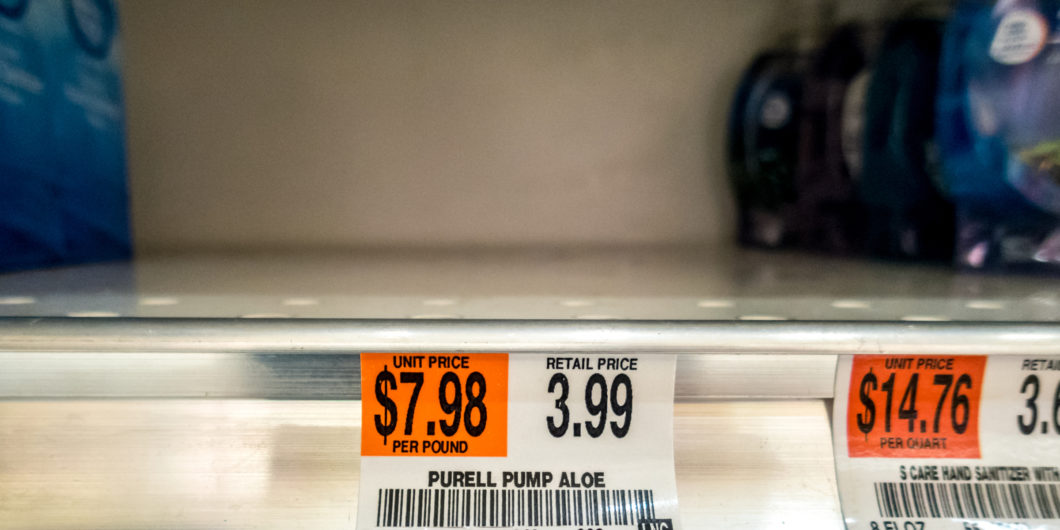The coronavirus epidemic is a shock to China’s political system, but—unless the death toll spirals out of control—it is probably one China can absorb.
Between Complacency and Panic
The first casualty of war is truth. It is also the first casualty of epidemics.
When serious epidemics make their presence felt, a dialectic between complacency and panic is set up in the minds of both the public and the political class. Only after the epidemic is over can a proper assessment of whether too much or too little was done to halt it be made. Since life is lived forward rather than backward, it is only with hindsight that what would have been the right response becomes clear; but if the epidemic has killed a large number of people, recrimination is almost inevitable.
Politicians who have never given a moment’s thought to the science of epidemiology before are suddenly thrust into the roles of expert and prophet, while at the same time having to keep an eye on their ratings in the opinion polls. If they admit their ignorance, they are accused of lack of foresight and leadership; but if they make definite pronouncements they are bound soon to be contradicted by their opponents, if not by the facts themselves. Less than two weeks ago, an article in the New England Journal of Medicine ended with these unprophetic words:
If we are proactive [in the ways suggested], perhaps we will never have to discover the true epidemic or pandemic potential of 2019-nCoV [the coronavirus].
What chance do politicians have if virologists and epidemiologists themselves are so little clairvoyant?
Error is not the same as foolishness or wickedness, of course, though in dire situations it is often treated as if it were. The desire then for a scapegoat is almost overwhelming. Not even Mr. Trump’s greatest supporters would claim consistency of outlook as one of his virtues, and it is hardly surprising that in a swiftly-evolving situation such as that of the coronavirus epidemic he has changed his tone, if not his tune, several times. He is far from the only one to have done so, of course. But he never forgets to excoriate his opponents, as they never forget to excoriate him. It seems as if the epidemic were indistinguishable from an election campaign.
If the epidemic is contained, Mr. Trump will claim the credit; if it is not, he will blame others. His opponents will do the same, but the other way round: if the epidemic is contained, they will praise others; if it is not they will blame Mr. Trump. There is thus a disturbing grain of truth in the assertion that Democratic politicians would not be altogether sorry to see the epidemic spread, at least spread enough to turn the population against the administration: one extra death might be worth a thousand votes. The desire for power distorts everyone’s scale of values, whichever party they belong to. This, unfortunately, is the human condition, and even the most stringent authoritarianism or dictatorship can only paper over the cracks for a time.
Much is still unknown about the virus and its mode of spread. Even its fatality rate is unknown because many infections may have been without symptoms and therefore not come to the attention of the public health authorities. If this is indeed the case, the fatality rate would be considerably lower than the 2 per cent at present estimated, though it would also indicate that the spread is more difficult to control. All that can be said for certain is that the old are more at risk than the young, as are those with pre-existing medical conditions such as diabetes and high blood pressure. If a vaccine were developed but was initially in short supply, it is they who should be immunised first; but in any case, it is unlikely that one will be developed quickly enough to affect the course of the epidemic. (Even the need to immunize the old first might be disputed, for more years of human life might be saved by preventing the death of one thirty year-old than by preventing the deaths of five eighty year-olds.)
As in the Cold War, we now talk of containment rather than of eradication. Early hopes that the United States might be spared the epidemic have proved what they always were, illusory. It is not only goods that are globalised.
For the moment, containment relies on case-finding, contact-tracing, and isolation or quarantine. In essence we are employing the methods used during the Black Death of 1347-1349. (They were unsuccessful in the Black Death, which killed a third to one half of the population of Europe, because, unknown at the time, the disease was carried mainly by a non-human vector.) Those who have symptoms of the disease, and those who have been in contact with them, are asked to isolate themselves for two weeks, until they are no longer—according to current ideas—infectious to others. Large gatherings are to be cancelled or postponed, as during the Black Death, and people are advised to travel as little as possible, especially by public transport, where the possibility of contagion is high. In the fourteenth century, walls were washed with vinegar and fumigated with burning herbs; we are told to wash our hands often and not to touch our own eyes or mouths, though how far this is actually effective in preventing spread to oneself is unknown. Sometimes it is necessary to go beyond the evidence.
It is hardly surprising that such advice—no doubt good—should lead to panic buying in supermarkets. Staying home as much as possible is the best way of avoiding contracting the disease even if one knows no one who has it, and more people than ever can continue to work from home. But of course, staying at home requires considerable stocking up of food and other necessities. Stocks of goods in supermarkets without re-supply are notoriously sufficient only for a few days even in times of normal buying. At the first sign of panic, it was obvious that the shelves would soon empty, which could only increase the initial panic. In Australia, 33 confirmed cases of the disease (of which only one was contracted in Australia itself)—that is to say one in every three quarters of a million of the population—has been enough to cause panic-buying. There has been panic buying in the United States also, where (as I write) there has been one case for every 3.3 million inhabitants.
Is this prudence or stupidity, the equivalent of expecting to make a fortune by buying a lottery ticket? So far, 6 people in the United States have died of the viral disease (most of them in one facility) since the epidemic started, and about 3000 people in road accidents: but no one, except perhaps for a few of the pathologically-anxious, refuse to leave their homes because of the chance of a road accident. In the same period, in addition, about 2500 people have been murdered, likewise leading to no panic.
The raw figures for comparison cannot, of course, be used to prove the sempiternal foolishness of mankind, its inability to see things in proper statistical perspective and behave accordingly, because, while it is perfectly possible that the numbers of deaths from coronavirus will grow at a rapid exponential rate, it is unlikely, to say the least, that the rate of death from road accidents or murder will do likewise. Nevertheless, epidemics do not go on for ever, and by the time this epidemic is over it is likely that, by the standards of the catastrophic Spanish flu of 1918-19, it will prove to have been relatively minor. It is always possible, however, that the next epidemic of a novel virus will be worse, so that the dialectic of complacency and panic will continue.
But the epidemic might well have effects far beyond any that its death rate could account for. The world has suddenly woken up to the dangers of allowing China to be the workshop of the world and of relying on it as the ultimate source for supply chains for almost everything, from cars to medicines, from computers to telephones. No doubt normal service will soon resume once the epidemic is over, even if at a lower level, but at the very least supply chains should be diversified politically and perhaps geographically; dependence on a single country is to industry what dependence on monoculture is to agriculture. And just as the heart has its reasons that reason knows not of, so countries may have strategic reasons that economic reasons know not of.
The danger is that the epidemic will be used as a justification for beggar-my-neighbour protectionism, and for zero-sum game economics, to the great impoverishment of the world. Judgment, that mysterious faculty that is so difficult to define or quantify, but which undoubtedly exists, will be needed to adjudicate the claims of strategic security and economic efficiency. Even in situations in which there is hard scientific evidence to guide us, such as the present epidemic, judgment is still required. The present highly-charged political atmosphere, in which opponents can hardly bear the sight of one another, or conceded any value to their ideas, is not conducive to its exercise.



